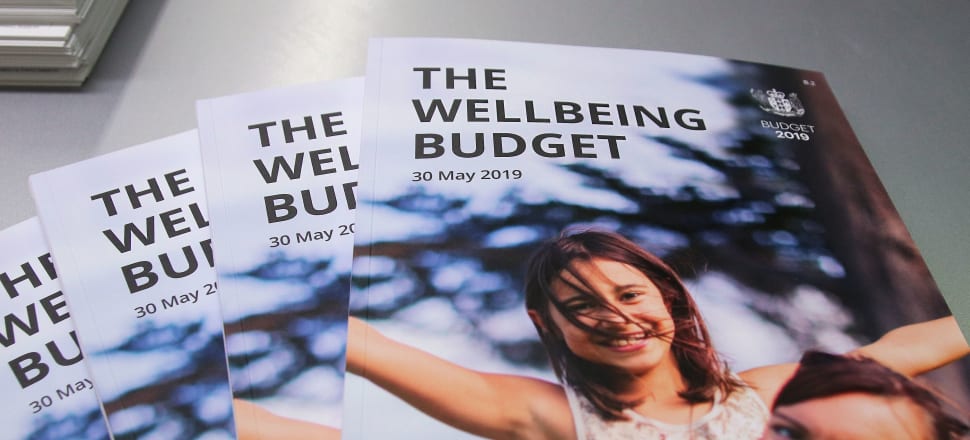The Wellbeing Budget opens with, “What is wellbeing?”, a question that has been widely posed and little understood. The Treasury definition is repeated here – wellbeing is when people are able to lead fulfilling lives with purpose, balance and meaning to them – and it goes on to acknowledge the long-term challenges facing Aotearoa New Zealand, such as child poverty, mental health, domestic violence, growing inequality, and climate change.
The Wellbeing Budget makes a bold claim that it moves to address these complex issues through a three-pronged approach:
- Breaking down silos and working across government
- Focusing on outcomes - present and intergenerational
- Tracking broader measures of success.
The Budget Policy Statement released in December 2018 described how the wellbeing approach to the budget setting is different from previous processes, and flagged the Government’s five priorities:
- Taking mental health seriously
- Improving child wellbeing
- Supporting Māori and Pasifika aspirations
- Building a productive nation
- Transforming the economy.
An additional infrastructure focused priority is detailed in The Wellbeing Budget: Investing in New Zealand.

The Living Standards Framework underpins and informs the Wellbeing Budget, along with advice from sector experts and Government Science Advisors, and various indicators are described under the banner of the four capitals. It is clear the five Budget priorities are linked to the capitals, which may be considered societal assets and stocks of sustainable and intergenerational wellbeing. The indicators of current wellbeing are woven into the four capital discussion, supporting the narrative around the evidence base for setting the priorities.
The inaugural Child Poverty Report front foots the Budget document, describing how the various priority initiatives will fit into the Government’s ambitious child poverty reduction targets. These initiatives include removing NCEA fees, increasing funding to decile 1-7 schools to reduce the need for school donations, and indexing the main benefits to average wage growth.
Whether the average increase of $20 per week by 2023 in the pockets of up to 146,000 families will make a significant difference to those experiencing deprivation, especially in the face of rising housing, food, and petrol costs, is arguable. Earlier this year the Welfare Expert Advisory Group reported that many families were at least $90 a week short of adequate levels of income.
Under the new cross-sector approach, the Wellbeing Budget includes several programmes under the key priorities:
- A whole-of-government approach to family and sexual violence with ten agencies and eight Ministerial portfolios sharing responsibility for a range of initiatives (Child Wellbeing priority)
- Industry 4.0 and Future of Work – working across sectors to develop policies to support a just transition, and funds have been reallocated from earmarked NZ Superannuation Fund contributions to develop a development network and up to two “smart factories” (Building a Productive Nation priority)
- Productive and Sustainable Land Use Package – seven Ministerial portfolios providing support to the primary sector to use land more sustainably, projects to improve water quality in at-risk catchments and wetlands, and funding to establish the Climate Change Commission (Transforming the Economy priority)
- Paiheretia te Muka Tangata – Uniting the Threads of Whānau – a kaupapa Māori approach to addressing high reconviction and reimprisonment rates for Māori, co-designed and implemented by Te Puni Kōkiri, the Ministry of Social Development, and Corrections (Supporting Māori and Pasifika Aspirations priority)
- The ministries of Health and Education are joining with Sport New Zealand on promoting healthy eating and physical activity in schools (Child Wellbeing priority)
- Hāpaitia te Oranga Tangata – Ministry of Justice, Police, and Corrections working together on a programme of increased mental health and addiction treatment and support services for those in prisons, where up to 91 percent of people have a lifetime diagnosis (Child Wellbeing, Supporting Māori and Pasifika Aspirations, and Taking Mental Health Seriously priorities)
- Te Waihanga – a new Infrastructure Commission will be established to produce an infrastructure pipeline and develop a 30-year strategy for long-term infrastructure investment; the prototype pipeline, includes projects from the ministries of Education and Health, Corrections, NZTA, and NZ Defence Force, priorities identified by the Construction Industry Accord.

While this doesn’t appear to be business as usual, is this the transformation we were promised? You may also like to read Increased government spending to drive economic growth.